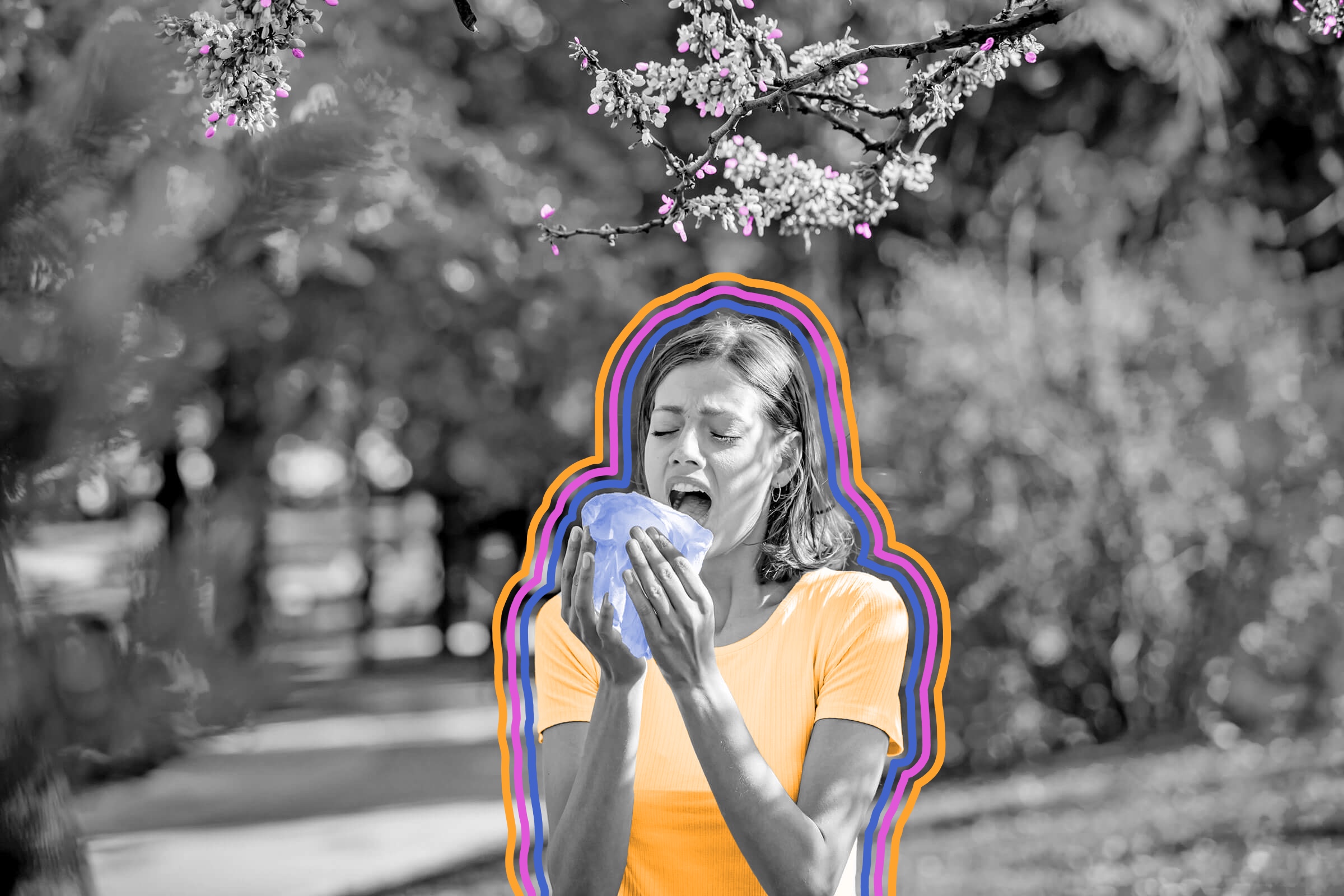| Sunlight tends to be good for us. It helps our bodies create vitamin D and mood-lifting serotonin, and even syncs our circadian rhythms. However, some people experience an unexpected side effect after glancing into the sun: sneezing. As many as one in four people have the reaction, appropriately called ACHOO syndrome (short for autosomal dominant compelling helio-ophthalmic outburst). The sun isn't the only thing to blame — the reaction can occur when moving from dark to light settings, after seeing bright lights, or even from witnessing a camera flash. ACHOO syndrome — also called "photic sneeze reflex" or "sun sneezing" — isn't an allergy. While researchers aren't entirely sure why it happens, one theory is that it's caused by a nervous system misfire involving the trigeminal nerve, which connects the eyes and nose with the brain. Within seconds of seeing bright light, the pupils of the eyes contract and stimulate this nerve, possibly causing the nose to accidentally sneeze. People who experience ACHOO syndrome may get a runny nose and watery eyes, too, though these symptoms tend to disappear within a few minutes. Sun sneezing also has a genetic component; children of parents who have the photic sneeze reflex have a 50% chance of experiencing the same phenomenon. Some people diagnosed with ACHOO syndrome also reflexively sneeze when undergoing anesthesia, though for the most part the condition is more of an annoyance than a health concern. While there's no treatment for sun sneezing, it is possible to reduce occurrences of the involuntary reaction with a few handy accessories, like hats and sunglasses, which block sudden bursts of light. | 






No comments:
Post a Comment